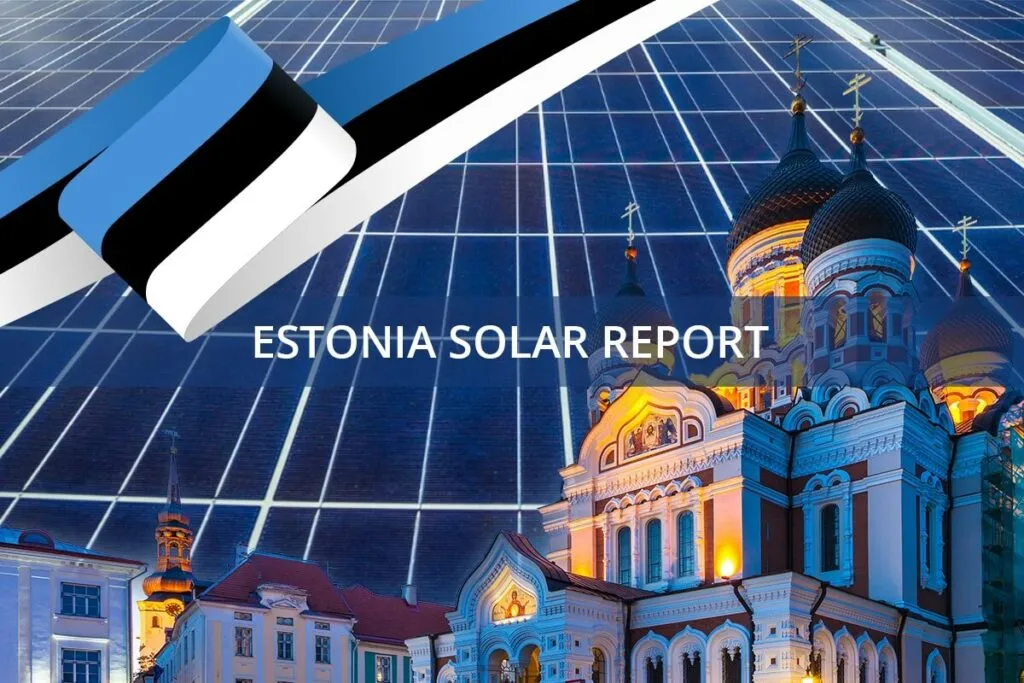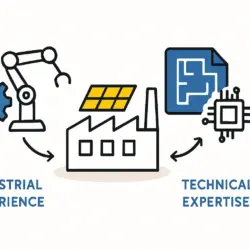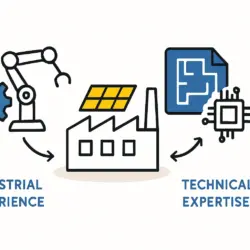Estonia’s solar sector is at a pivotal moment, experiencing a surge in growth fueled by significant new financing opportunities and, simultaneously, coming under closer regulatory scrutiny. This dynamic landscape is defined by major investments aimed at scaling up renewable capacity and the parallel efforts to ensure the market remains fair and competitive. Recent developments, including a major loan from the European Investment Bank (EIB) and a competition inquiry by the Estonian Competition Authority (ECA), perfectly capture the opportunities and challenges shaping the nation’s clean energy future.
EIB’s €100 Million Loan for Estonia solar financing
In a significant vote of confidence for the Baltic renewable energy market, the European Investment Bank (EIB) has approved a €100 million loan for Nelja Energia, a subsidiary of the Estonian energy group Eesti Energia. This funding is earmarked for the development of 500 MW of new solar capacity, marking a substantial step forward for the region’s green transition.
The loan will finance the construction of solar power plants not just in Estonia but across the Baltic region, including Latvia and Lithuania. These projects are critical for helping the region meet its renewable energy targets, reduce its historical reliance on fossil fuels, and enhance energy security. The development of these new solar farms involves a complex manufacturing process for the panels themselves, sourced from various international suppliers. Understanding the basics of solar panel manufacturing is key to appreciating the scale of such an undertaking.
This EIB loan is part of a broader investment trend. For instance, Estonia is also seeing landmark financing for critical infrastructure like battery energy storage systems (BESS), which are essential for stabilizing the grid as more intermittent sources like solar come online. Such investments underscore a coordinated effort to build a resilient and modern energy system. A detailed solar panel manufacturing plant cost breakdown reveals why such substantial loans are necessary to kickstart large-scale production and deployment.
ECA’s Investigation into the Solar Market and Estonia solar financing
While major investments signal a bright future, the rapid growth has also attracted regulatory oversight. The Estonian Competition Authority (ECA) has launched an investigation into several companies within the solar sector, citing potential violations of competition law.
The probe will examine whether companies have engaged in anti-competitive behaviors such as price-fixing or creating market-sharing cartels. While the specific companies have not been named, the ECA has affirmed its commitment to taking decisive action if any wrongdoing is uncovered. This move is reflective of a wider European trend where regulators are increasing their scrutiny of the energy market to safeguard consumer interests and ensure a level playing field amidst the green transition.
The ECA’s investigation highlights the critical importance of robust regulatory frameworks. As the industry matures, ensuring fair competition is paramount for sustainable growth, encouraging innovation, and making solar energy more affordable for everyone.
The Future of Estonia’s Solar Sector and Estonia solar financing
The EIB loan and the ECA investigation represent two sides of the same coin for Estonia’s burgeoning solar industry. The infusion of capital is set to accelerate the deployment of new solar projects, creating jobs and making tangible progress toward climate goals. It also impacts the entire supply chain, from the procurement of solar panel raw materials to the final installation.
Simultaneously, the regulatory probe serves as a crucial reminder that growth must be managed responsibly. Strong oversight is necessary to maintain market integrity, prevent monopolies, and ensure that the benefits of the clean energy transition are distributed fairly. Transparency and accountability will be the bedrock of long-term success.
The outlook for Estonia’s solar sector is undeniably promising. With significant financial backing and a clear policy direction, solar power is poised to play a central role in the country’s energy strategy. However, its ultimate success will depend on balancing rapid expansion with rigorous oversight. By fostering a competitive and transparent market, Estonia can ensure that its solar ambitions translate into sustainable, long-term value for its economy and environment.
If you are interested in the technical and business aspects of solar energy, consider exploring our free e-course to deepen your understanding of this transformative industry.



